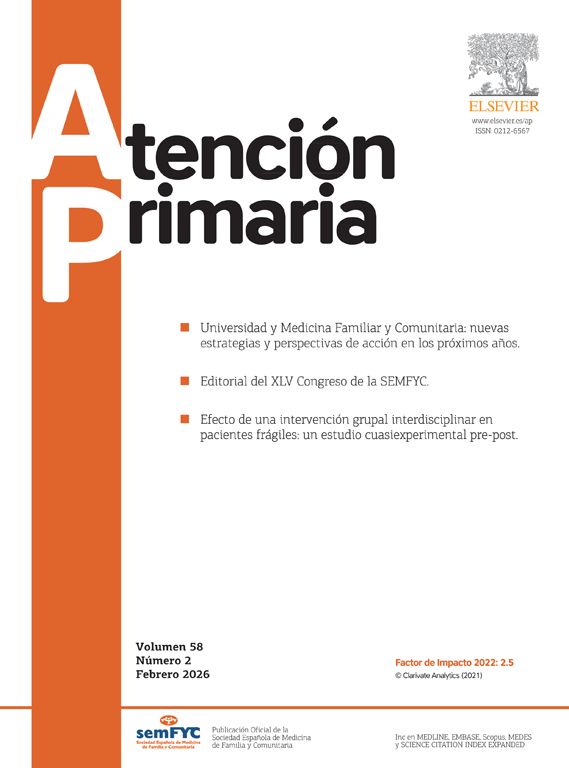The study "Evaluation of primary health care reform: preventive practices and inequalities"1 presents very interesting results that adds more knowledge to that already available on the subject of health inequalities. The authors did not find significant disparities according to social class or gender in receiving certain preventive practices, with the exception of anti-smoking advice, which was given more often to the better off classes. The study also has the virtue, from the perspective of evaluating primary health care reform, of approaching a subject that has not been analysed much in our country.
The term "inequality" refers to the differences, in terms of health, that are unnecessary, avoidable and unjust. The concept of "inequality in health" is associated with the different opportunities and resources within the reach of people depending on their social class, gender, geographic area, or ethnic group, that could improve their health.2 Over the last thirty years or so, many studies dedicated to inequalities have been published, mainly being based on the analysis of death rates and health surveys. In Spain, one of the pioneer groups is the very one that has produced the present article.3,4 These studies showed that the inequalities in health are enormous and in many cases cause increased mortality and a higher morbidity to the majority of risk factors of known diseases. The results also show that the inequalities are gradual, since they extend throughout the social scale and are not just a problem of the poorest people. Also, far from decreasing over time, they increase, since the more privileged classes of the population further improve their levels compared to the other social classes, probably because they benefit due to and in a greater proportion from actions directed at improving health.
In this study, substantial differences have not been found in the receiving of preventive activities. These results are promising, since several studies have demonstrated that the increase in these preventive practices is associated with a decrease in the main causes of medically avoidable mortality. However, it has to be remembered that access to quality health care does not guarantee that inequalities will be reduced.5 Political, economic, ecological, social, demographic, and historic factors, affect our health. In fact, in the report by Acheson,6 39 evidence based interventions to reduce health inequalities were analysed, only 3 of which involved the field of health care.
Currently, the challenge is in moving on from knowledge of the problem to action. Up until now, the policies carried out to reduce inequality are limited and the topic is not the object of debate in the political agenda.7 In this sense, note should be taken of the study which systematically reviewed 14 health plans and demonstrated the limited attention given to inequalities in health, with the exception of the Basque Country.8
Borrell and Benach pointed out three directions to lessen the inequalities in health9: to improve the coverage and information systems and training, to develop research programmes with the necessary finance to analyse the inequalities in depth, and promote the most effective social and health policies to improve health levels of the whole population which, in the end, will be those that will help to reduce the inequalities in health care.
Key Points
• The current challenge is to move on from knowledge to action on the inequalities in health.
• There are few policies, at the moment, aimed at reducing these inequalities.
• It is essentail to promote effective social and health policies to improve the level of health in the whole population.







